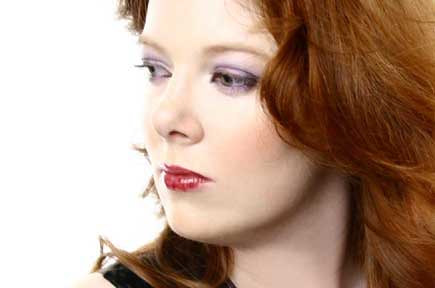Soul Music - Terry Pratchett

Rock 'n' roll comes to the Discworld®. Disaffected young bard Imp y Celyn arrives in Ankh-Morpork seeking his fortune, and ends up buying a second-hand guitar of Mysterious Origins from a strange little music shop. In the manner of magical instruments everywhere, it provides untold fame and fortune - but at a price. As the power of the music sweeps through the city, it looks like Imp's destiny is to live fast and die young, taking his band members with him. Only one ANTHROPOMORPHIC PERSONIFICATION on the Disc has the ability to change this, but he's not been feeling himself lately, and picks the least opportune moment to go walkabout. His granddaughter Susan has been protected from the rather, um, less conventional aspects of her family's history, but she's going to have to get the hang of it quite quickly...
This is Susan Death's first Discworld outing, but apart from that, it's all pretty standard stuff. The story is the usual device of New Magical Power Appears To Threaten the Discworld®, But Is Thwarted And Life Continues As Normal, with the added Death side-story of Death Tries To Understand Humans, Fails. These are both formulae that work well enough in other Discworld® books, but here it's looking particularly stale. One of the main reasons for this is probably that Pratchett is writing about a subject he doesn't really understand, and it's slightly embarrassing to watch, like politicians talking about how much they like the Arctic Monkeys.
Let's be clear about this - Soul Music is no Spinal Tap. It's not an affectionate insider's view of the music biz; it's the view of the slightly smug middle-class, who think that headbanging teens are incomprehensible but rather funny. And yes, they can indeed be funny, and there are even plenty of laughs in here, but the veneer of amused superiority adds a nasty taste to the humour. That's not to say it's all bad - the references to 1950's pop culture were fine by me as they pre-date my own teenage years by some decades, and some of the subtler gags were particularly clever. Not so the constant references to Buddy's "Elvish" appearance, however, which I thought were rather overdone (though apparently my dad didn't get it till right at the end of the book, so maybe Pratchett judged that one right after all).
Now, onto the good points. As well as introducing Susan Death, this may well have been the first appearance of Hex, the wizardly computer in the High Energy Magic building, and one of my favourite minor players. The elderly, overweight wizards suddenly acting like rebellious teenagers was also quite entertaining, plus the usual cameos of Ankh-Morpork street life and so on, and Death's soul-searching was also a nice deeper touch. Basically, it's just a standard, slightly inferior Discworld® novel; good enough for a few hours' entertainment if you can grit your teeth past the patronisation, but far from being Pratchett's best.
6½/10



2 Comments:
a great and insigtful review Alice. Dissecting the story just right, without giving any of the story away.
Pratchett is writing about a subject he doesn't really understand, and it's slightly embarrassing to watch, like politicians talking about how much they like the Arctic Monkeys.
I have to disagree with you on this one. I'd say Pratchett "gets it" just fine. A lot of the humour in the story's presentation is firmly rooted in putting the reader on the "parental side" of the generation gap.
Post a Comment
<< Home